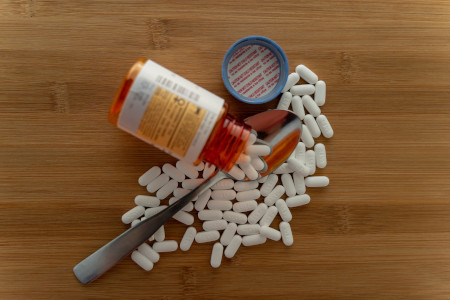World Antibiotic Week: Antibiotic Awareness in Seniors
Antibiotic awareness in seniors is in the spotlight. World Antibiotic Awareness Week is from 18-24 November 2019. The aim of this very important awareness week, is to enlighten people as to the wise use of antibiotics.
World Antibiotic Awareness Week campaigners tell people a clear message:
Use antibiotics when needed, don’t use it when not needed and follow your doctor’s instructions when using antibiotics.
Antibiotics – a Fairytale Turned Horror Story?
Antibiotics, since they were discovered in 1928 by Alexander Fleming have caused many lives to be saved. Countless people, young and senior, have benefited from antibiotics over the years. At the time, antibiotic medicine was seen as a miracle drug.
So why is there an alarming call for antibiotic awareness in seniors and others too?
Because, the misuse of antibiotics has become a threat to public health.
The Creation of Antibiotic Resistance
The widespread use of antibiotics, and un-knowing misuse of antibiotics has led to a massive problem: Global antibiotic resistance.
The World Health Organization (WHO) has campaign materials ready for this year’s World Antibiotic Awareness Week.
The WHO wants more people to become aware how overuse and misuse of antibiotics, has created bacteria that are resistant to antibiotics.
Antibiotic awareness in seniors is extra important. Seniors often need a bit more tender loving care in order to get over an illness. Misuse of antibiotics, only hinders the healing process.
Antibiotics are Powerful – Handle with Care
What is supposed to happen when you take antibiotics?
The antibiotic medicine is prescribed for infections involving bacteria – only – and it fights the destructive bacteria in the body. The immune system fights infections from viruses. That includes most colds, sore throats and flu-ish infections.
There is an unfortunate truth in the expression which people say. “A cold/sore throat gets better by itself in a week; but with antibiotics, it takes seven days.” The fact that the illness gets better without the antibiotics is due to the body’s immune system working.
Read up about the facts behind antibiotic misuse.
What happens when you take antibiotics unnecessarily?
If bacteria are exposed to antibiotics, but not killed by it, the bacteria mutate and become resistant. The next time a person uses antibiotics, if they don’t work as effectively, different stronger antibiotic might be offered. In the meanwhile, the bacterial infection may have increased and become stronger as well.
Illnesses that once could be treated by antibiotics, turn into the untreatable. Infections become antibiotic-resistant.
Why is there a need for antibiotic awareness in seniors?
Seniors in the Antibiotics Picture
Picture this: A loving senior couple, sitting together after their meal. One of them takes out a small re-sealable storage bag. In it are his pills. Carefully he selects the correct type and correct amounts of the different medications. He downs the pills with a glass of water. Next, he shakes the bottle of antibiotics syrup and pours a spoon for himself and a spoon for his wife.
Strange that they both need antibiotics at the same time?
Yes, it is strange. She doesn’t need the antibiotics, actually, and is taking them since there is extra in the bottle. It is to keep her strong, she says. Uh oh.
The loving couple can share in everything, but not in antibiotics!
Many people feel it is a waste to bin good items. However, that is the correct thing to do for antibiotics left at the end of a course of medicine.
These and similar misunderstandings, have caused many seniors to ingest and swallow antibiotics unnecessarily.
Recommended Antibiotics Practices
There is a unanimous voice regarding safe practices for using antibiotics. The three tips are:
Listen to the Doctor
- Take the right amount of medicine as prescribed, don’t add and don’t decrease.
- The whole course of medicine must be taken. If you feel better, that is good. However, there is more work to be done beneath the surface. The bacteria still need to be finished off, otherwise they will become resistant. That is why there are more days left to take the medicine even after you feel better.
Don’t Share and Share Alike
- Sharing antibiotics with a family member or friend does not help you or them. Your antibiotic was prescribed specifically for your issue. Their issue might not require antibiotics, or not the same type.
Leftovers Go in the Garbage
- Actually, leftovers can be disposed of more safely, in a disposal box in the pharmacy.
- If you need antibiotics again, get a fresh supply.
- Leftover antibiotics that do not provide a full course, cannot destroy an infection. Taking a few tablets merely allows the bacteria to further develop and become resistant.
You can learn more about antibiotic resistance from the Centers for Disease Control and Prevention (CDC).
Just a Spoon Full of Common Sense Makes the Medicine Be Right
We have seen how people easily fall in to the trap of misusing antibiotics.
Antibiotic awareness in seniors, as well as among other populations, is essential. Every caring and careful individual makes an impression for the general effort.
Seniors (and youngsters) should be in contact with their doctor, who is trained to diagnose a health issue. A doctor can determine whether a patient needs antibiotics or not.
Antibiotic awareness in seniors, works to the benefit of seniors themselves, as well as future generations. The key to a more informed future, is in your hands today.

Photo by Michael Longmire on Unsplash
